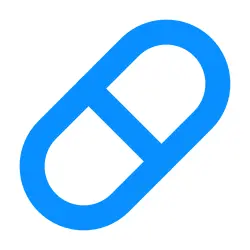Treatments (0)
Advice for Nasal Infection
Why does sinusitis or nasal infection occur?
A virus, bacteria, or fungus that inflames and obstructs the sinuses can result in sinusitis. Several particular causes include:
- the typical cold.
- seasonal allergies, nasal allergies, and mold allergies.
- Polyps (growths) (growths).
- an altered septum. Your nose is divided by a line of cartilage called the septum. The nasal channel on one side of your nose is closer to the septum because it isn't straight, which results in an obstruction.
- immune system that is compromised by disease or drugs.
Infants and young children may be more susceptible to sinusitis if they spend time in daycares, use pacifiers, or drink from bottles while lying down.
Adult smokers are more likely to have nasal infections. If you smoke, give it up. Smoking is hazardous to both the smoker and others around them.
Usually, your clinician can identify nasal infection based on your symptoms.
A viral infection, such as the common cold or flu, almost usually causes nasal infection, which can be identified by the presence of face pain, nasal obstruction, or runny nose along with a diminished or lost sense of smell Facial pain is less frequent and loss of smell more frequent in chronic (persistent) nasal infection.
Your clinician will examine you and ask you about your symptoms to determine if you have a nasal infection. Many nasal infections can be treated without antibiotics. Without drugs, most sinus infections typically recover on their own. A
But occasionally, you could require antibiotics. Staphylococcal bacteria-related nose infections are treated with Naseptin nasal cream. Naseptin is a comparably efficient substitute for having the nose cauterized.
Certain bacteria in the nose can be momentarily eliminated using Mupirocin or Bactroban. This procedure is a component of a program designed to reduce the risk of infection. An antibiotic is mutirocin. It functions by preventing the development of specific microorganisms.
Some of the natural therapies for nasal infection symptoms may also help to avoid nasal infection. These include employing remedies your doctor may advise, such as steroid nasal sprays or allergy drugs, and washing your nose with salt water.
Avoiding items you are allergic to, such as dust, pollen, or smoke, as well as sick people, is advised. To lessen your risk of contracting the flu or a cold, wash your hands.
Nasal Infection FAQs (4)
Acute nasal infection or sinusitis affects more than 37 million Americans at least once a year. In the past ten years, sinusitis has become much more common, presumably as a result of increased pollution, urban sprawl, and antibiotic resistance.
Antibiotic treatment typically lasts ten to fourteen days for acute nasal infection. After receiving therapy, the symptoms go away, and the incident no longer need for antibiotics. Decongestants, both topical and oral, may also be recommended to treat the symptoms.
Use of over-the-counter drops or sprays may aid with symptom control. However, prolonged use of over-the-counter decongestant nasal sprays has the potential to worsen symptoms and should not be done so. It's okay to use saline nasal sprays or drops on a regular basis.
Use of over-the-counter drops or sprays may aid with symptom control. However, prolonged use of over-the-counter decongestant nasal sprays has the potential to worsen symptoms and should not be done so. It's okay to use saline nasal sprays or drops on a regular basis.

